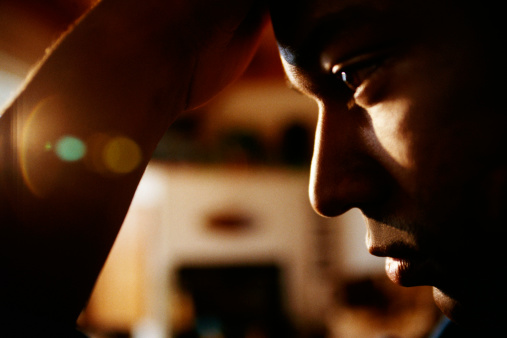For those of us newly diagnosed with a mental illness, we are the last to know. We knew something was wrong, but we did not know what it was. Our friends and family seemed upset with our words and behaviors, but we did not know why. We felt, for the most part, normal as we always had. Our illness snuck up on us. It was full-blown before we even knew we had one.
Mental health professionals then decided we needed inpatient care, even if for a short time, but this intervention came with a fresh difficulty. We were now separated from family, friends, school, work and the life we knew. We were faced with a completely new life.
We were put on strong medications. These treatments caused weight gain, anxiety, isolation and withdrawal from a social life. We were now one of “Them.” I lived the life of “One of Them” until I was 30 years old.
The road to recovery is arduous. It is fraught with challenges most people know nothing about. Even our mental health professionals would at times tell us they did not know what to do. How do we finish school? How can we get back to our job? Where am I going to live? Who can I call “friend”?
For many of us these questions remain unanswered. Too many of us never finish school. We don’t go back to work. It is hard to find a place to live. Our friends are the people that were in treatment with us. Life looks very different from this place.
It is not easy. Hollywood vilifies those with mental illness. How many blockbuster horror movies feature the psychotic cobbler, or murderous dentist? Stigma and discrimination still abound.
There is hope. A growing number of us are setting our own goals, deciding our life’s trajectory, gaining professional employment, and living in the community of our choice.
What makes this happen? What supports recovery and a return to a full life? Can anyone experiencing these challenges gain the strength and knowledge to have a full life?
For me it was the right medication, strong peer support, help staying clean and sober, and opportunity. I went from homelessness to having my own home. I stopped receiving government support checks in 1996 and I live on the wages I earn. I graduated from college with a degree in Substance Abuse Counseling. I have good relationships with family and friends. I can take vacations. I have a couple of sports cars. I have owned the fastest liter bikes in the world. I have been clean and sober for more than 21 years. A lot of great things have come my way.
[Voices of recovery in Juneau: Web series features community members’ battle with addiction]
The greatest thing I do is support others who are facing some of the same challenges I have overcome. I can take all of the negativity of mental illness, drug addiction, incarceration and reframe them and use them for good. It is a great gift to be in a place in life where my own experiences have such value to others.
I wrote a book in hopes that others may find light in the darkness. I spend a lot of time thinking of the best ways to provide positive encouragement to my peers. I have helped expand peer support options by collaborating with other professional support organizations in our community.
When one person is recovering it benefits the whole community. When someone is recovering, the load we all carry is lighter and the light burns a little brighter.
We don’t want handouts or free rides. We want a life of independence, family and community. We are capable, intelligent, loyal, hardworking and compassionate. We are your brothers, sisters, sons and daughters. We are your neighbors and friends and we want to be a part of the full life of the community.
This is just my story but many stories on the journey to recovery are still being written. During National Mental Illness Awareness Week we remind ourselves that we can provide the positive support and understanding necessary to help others succeed. Please contact NAMI Juneau at www.namijuneau.org/ for more details on how you can add your voice.
• Bruce Van Dusen is Executive Director of Polaris House and a member of NAMI Juneau’s Peer Council. He lives in Juneau.
Read more Opinion:
My Turn: Juneau Road Project is fiscally responsible
My Turn: Congress should allow Medicare to negotiate drug prices

